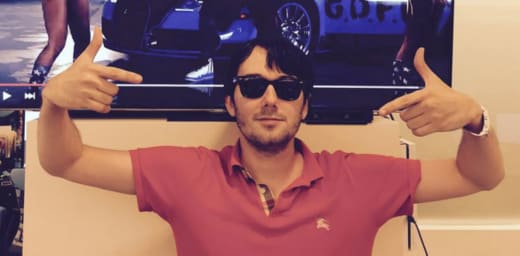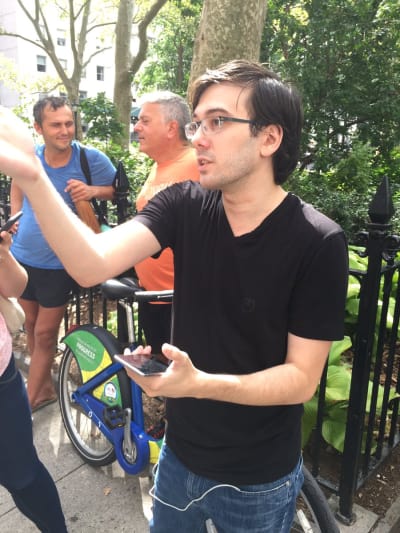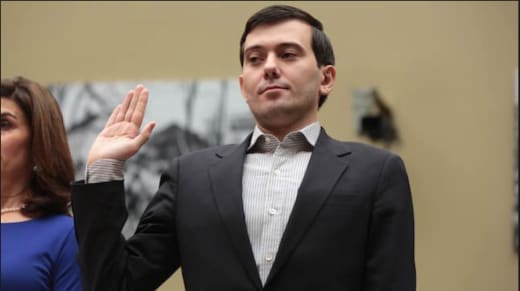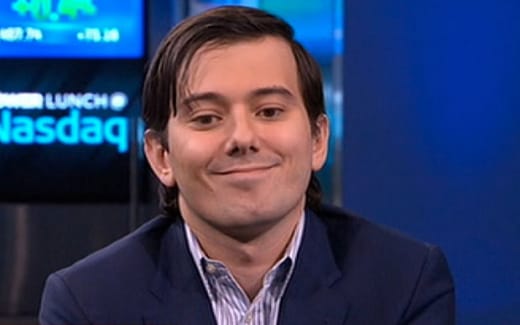Universally reviled public figure and sometime “Pharma Bro” Martin Shkreli was convicted on three counts of securities fraud Friday.
Shkreli faces up to 20 years in prison, and while he will likely serve much less, he shook his head in apparent disbelief at the verdict.
“We’re delighted in many ways,” Shkreli, who was exonerated on five out of eight criminal charges, said outside the courtroom later.
“This was a witch hunt of epic proportions,” he added.
“They may have found some broomsticks.”
Shkreli’s legal demise is likely to be celebrated across the land, given the reputation he’s cultivated over the past couple of years.
His apparent willingness to lie, exploit others for wealth that he later flaunted to an insane degree, and instigate public feuds is unmatched.
As such, many observers will be thrilled to see him go down in flames; Shkreli was not on trial for the above behavior, of course.
Prosecutors argued that he lied to investors in two hedge funds and the pharmaceutical company Retrophin, all of which he founded.
Shkreli allegedly told investors he graduated from Columbia, that his hedge fund was large and profitable, and that he hired an auditor.
All lies, according to prosecutors.
Shkreli’s defense attorney countered simply that his investors were wealthy and sophisticated, and that he ultimately made them richer.
He said Shkreli will appeal and that the hedge fund manager – nicknamed “Pharma Bro” for his previous career pursuits – should not go to jail.
You may recall that he first gained notoriety as a pharmaceutical exec by raising the price of a vital drug used by AIDS patients by 5,000 percent.
When he received intense scrutiny for this, he doubled down on it, fanning the flames by lamenting only that he didn’t raise it more.
That notoriety – which included taunting reporters on Twitter and smirking through Congressional hearings – hung over this trial.

He also engaged in feuds with Ghostface Killah and others, and used his significant wealth in increasingly extravagant, public fashion.
Even during jury selection, the judge struggled to find potential jurors who didn’t already dislike the New York douchebag intensely.
Not helping matters was Shkreli, who had walked into a room full of media and derided the prosecutors in his case as “junior varsity.”
During the trial, prosecutors painted him as a greedy, chronic liar, while the defense tried to chalk up his “eccentricity” to the quirks of a genius.
Prosecutors focused on his leadership of two hedge funds, MSMB Capital and MSMB Healthcare, and a pharmaceutical company, Retrophin.
Shkreli raised millions for MSMB Capital, but not as much as he told investors, then made a bad bet that would doom the hedge fund.
And then …

Rather than tell investors this, Shkreli raised more money to start MSMB Heathcare, which he largely used to start up Retrophin.
When concerned investors asked for their money, Shkreli used money from other investors and money and stock from Retrophin to pay them.
“Just because the defendant got lucky and Retrophin became a success” later on doesn’t make this any less illegal, prosecutors argued.
“Martin Shkreli doesn’t think the rules doesn’t apply to him, that the law doesn’t apply to him unfortunately for him, it does.”
Shkreli’s attorney argued that he did not defraud anyone and that his investors – even those who testified against him – were not victims.
In the end, the jury didn’t see it that way.
Shkreli’s lack of contrition and his behavior – personal and legal – were obstacles that the defense team simply could not overcome.

